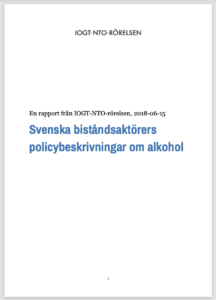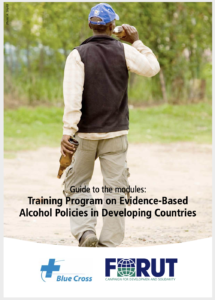Development can be hampered - or go in the wrong direction - due to alcohol. There is much to suggest that many development projects would give better results if the alcohol dimension were included in the analysis, planning and implementation.
Among aid organizations awareness of alcohol as an obstacle to development is growing. More and more people are including alcohol prevention elements in their programs and are seeing clear results from this.
In 2013, Forum South adopted a policy on alcohol as an obstacle to development. All organizations that apply for program support from Forum Syd must answer questions about how they see that alcohol risks affecting the results of the programs and how they intend to handle the issue.
Many aid projects would feel good about being alcohol-safe. This manual can help you analyze the ways in which alcohol affects the results of your projects, and provide concrete tips on how to integrate alcohol prevention components into aid.
This manual is meant to give you this:
The World's Hangover describes how alcohol in various ways delays and hinders development in the world. The links are clear to poverty, public health and the national economy. The book explains the connections, but is about what can be done to reduce the problems.
The fourth edition is fundamentally reworked and contains a lot of new things - including a chapter on alcohol and aid.
Download a pdf of the book for free hereor order printed copies for SEK 50 here.
 How to formulate Swedish aid actors about alcohol in their policy documents? Here are examples of policy statements and recommendations from the IOGT-NTO movement.
How to formulate Swedish aid actors about alcohol in their policy documents? Here are examples of policy statements and recommendations from the IOGT-NTO movement.
 Blue Cross has together with Forut published a manual for education on evidence-based alcohol policy from a development perspective. The manual is based on experience from training courses conducted in seven African countries.
Blue Cross has together with Forut published a manual for education on evidence-based alcohol policy from a development perspective. The manual is based on experience from training courses conducted in seven African countries.
Read more about the training material here.
Back to Knowledge center.
